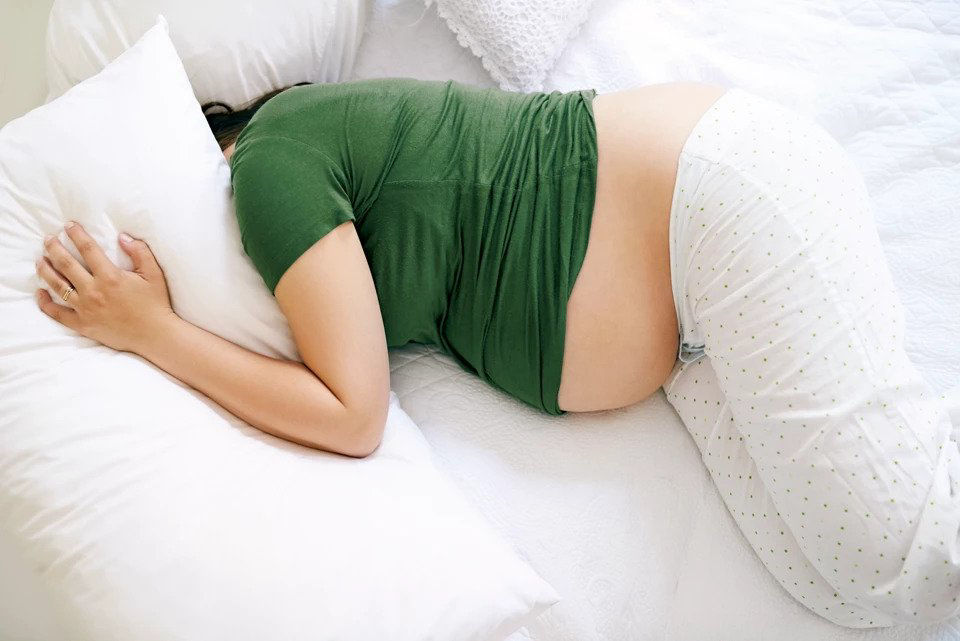Free weaning plan - Register here
Will I need stitches?
It’s perfectly natural to be a little nervous about requiring stitches after birth, try not to worry. Everyone’s different and not all women need them. If you need any extra advice or reassurance about stitches, don’t be afraid to speak to your midwife or GP.
Why might I need stitches after giving birth?
In order to give birth, your body needs to adapt by doing a fair amount of stretching. The area between your vagina and back passage (known as your perineum) may over-stretch during delivery. This area is particularly vulnerable to possible tearing because it’s the part of your body that is placed under most stress as you push out your little one.
If your baby is in the breech position (which means their little head is not coming out first) or they require the use of forceps, they might be in distress and need to be delivered quickly, and this can also cause tearing. Or, you may need an episiotomy to help make room for your baby and prevent this from happening.
Your doctors might have had to make a small cut to your perineum (this procedure is called an episiotomy) to help make room for your baby.
You'll also need stitches if you have a Caesarean.
Regardless of why you may need stitches, the most important thing is that you understand how to care for them and help them heal.
What’s an episiotomy and why might I need one?
An episiotomy is when your midwife makes a small cut in your perineum to prevent you from tearing, or to speed things up if your baby needs to be delivered quickly. A local anaesthetic is used to numb the area to stop you feeling any pain.
How long do stitches take to heal?
The length of time stitches take to heal will depend on the reason you need them. It tends to take between 2 and 4 weeks for stitches between the vagina and back passage (perineum) to heal, but everyone is different and you may find it takes longer.
Episiotomy stitches will usually heal in the first month or so after the birth of your little one, but be prepared for potential bruising and swelling, both of which are very natural.
If you’ve had stitches due to a Caesarean, you’ll generally heal in around 6 weeks, but again it’s not unusual in certain cases for this to take up to 12 weeks.
What makes a tear more likely during labour?
Every woman's body reacts differently to labour, and it is hard to determine if you're more likely to tear while giving birth. However, the following factors could make you more prone to tearing:
- If this is the first baby you've have had vaginally.
- If the pushing stage of your labour goes on for longer than expected.
- If your baby is born in the breech position.
- If your baby is born with the help of forceps or ventouse.
- If you've had tearing before.
- If your baby weighs more than 4kg.
?ts=1701080536584&dpr=off)
How will the stitching be done?
For minor tears, you'll usually be stitched in the room where you gave birth. Your midwife will use a local anaesthetic to numb the area and will carefully stitch up the tear using a ‘running stitch’. Most maternity wards will use dissolvable stitches so there's no need to have them removed.
For more severe tears, you might be taken to an operating theatre, where you'll be given a local or general anaesthetic and a doctor will stitch the cut.
If you’re planning on having a home birth, then speak to your midwife about your options.
How long do stitches take to heal after giving birth?
The length of time stitches take to heal will depend on the reason you need them. It tends to take between 2 and 4 weeks for stitches between the vagina and back passage (perineum) to heal, but everyone is different and you may find it takes longer.
Episiotomy stitches will usually heal in the first month or so after the birth of your little one, but be prepared for potential bruising and swelling, both of which are very natural.
If you’ve had stitches due to a Caesarean, you’ll generally heal in around 6 weeks, but again it’s not unusual in certain cases for this to take up to 12 weeks.
Episiotomy stitches care
The best way to care for your stitches is to keep them clean and dry. Try to wash your perineum using warm water every time you visit the loo and gently pat the area dry using toilet tissue. You should also aim to change your sanitary pad regularly to keep the area dry and comfortable.
?ts=1701080540018&dpr=off)
How to soothe the pain caused by stitches after giving birth
Stitches after tearing during labour or an episiotomy can be quite sore at first, but there are some things you can do to help soothe the pain.
Cool temperatures will both ease the pain and help reduce swelling in the area. One way of doing this is to sit in a shallow bath of cold water – just make sure you pat your stitches dry with a clean towel afterwards. You can also use a cold gel pack wrapped in a clean flannel, but don’t leave it on for more than half an hour, and wait an hour between applications.
Painkillers will help to ease discomfort. It’s a good idea to talk to a doctor about the best painkillers for you, as some are not suitable for use when breastfeeding.
It can also be painful when you go for a poo, so try placing a clean pad over the cut and press gently as you pass the stool. And if urinating is painful, try going in the shower or pouring warm running water over the area to ease the stinging.
If you are finding it painful to sit, you could try using a Valley Cushion. These are specially designed inflatable cushions that make sitting down a little more comfortable.
Many new mums who’ve had stitches find sex painful for the first few months. If this is the case, talk to your partner and take as long as you need to heal before having sex again. You shouldn’t feel any pressure in this department.
How to heal stitches faster after giving birth
?ts=1701080525310&dpr=off)
It really helps to keep the area clean and dry. One way to do this is to give yourself a quick wash with a spray bottle full of water. Simply squirt a few times a day and dry yourself gently. It’s also a good idea to wipe your bottom gently from front to back to reduce the risk of infection.
If you do pelvic floor exercises as often as you can, you will increase blood flow to the area and encourage healing.
Eat plenty of fibre and stay hydrated with lots of water to avoid constipation, so you’re less likely to need to push when you go to the loo.
Lastly, change your sanitary pad regularly and make sure it doesn’t rub against your stitches.
?ts=1701080527648&dpr=off)
What should I do if I feel there is a problem with my stitches?
Sometimes, regardless of how well you look after them, there can be complications with stitches. If you experience pain, excessive discomfort or any of the symptoms below, it’s best to speak to your GP or midwife as soon as possible:
- Unusual pain or a bad smell in the area.
- High temperature.
- Severe lower abdominal pain.
- A burning or intense stinging pain when weeing.
- Having to rush to the toilet with the urge to poo.
- Being unable to control your bowels when passing wind.
- Bleeding more than you’d expect, or passing clots.
The most important thing is that you rest and heal, so try not to expect too much of yourself while you wait for the tear to get better. Remember to put your feet up, but still move around occasionally to ensure you’re getting blood to the area to help with healing.
More from baby

Join our baby club
Ready to stop worrying about what other people think and do what feels right to you? We’ll give you the support you need to follow your instincts and enjoy parenthood to the max:
Helpful emails
Non-judgemental support
Free weaning plan
Tips from real parents
Last reviewed: 31st August 2020
Reviewed by Nutricia’s Medical and Scientific Affairs Team
Baby topics
Need free advice with a smile? Get in touch with our dedicated Care team.
Ask us a question (8am - 8pm Monday to Friday, 10am - 4pm Weekends)
Messenger
Contact us on Facebook ( 10am–10pm Mon–Sat, 10am–5:30pm Sun)
Call us
Call us on 0800 977 8880 (8am - 8pm Monday to Friday)
FAQs
Get answers to your most frequently asked questions
?ts=1701080526188&dpr=off)
?ts=1701080534077&dpr=off)
?ts=1701080533420&dpr=off)
?ts=1701080526396&dpr=off)


